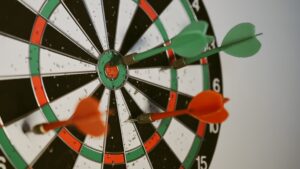This is about Nonviolent Communication and social change. It was always part of what Marshall talked about – using NVC as a way to support social change. It was important to him, and he was never as clear about it as I would have liked him to be. Now, though, I’ve reached a point where I’m glad he didn’t fill in the gaps. I think it’s dangerous territory for one person to define what is meant by ‘social change’.
Are you starting with judgements?
If we think that the world needs to change, it is easy for judgements to creep in. ‘This is terrible – we need to change it.’ Already there are two judgements. Firstly, there is an analysis that something is terrible or wrong. Secondly, the ‘change’ that is envisaged may be a specific strategy based on a political view. Even as we make a judgement that change is required, we may be imposing a political world-view on others, perhaps without even realising it. Certainly our cultural bias will creep in.
Instead- what is moving you? What are you seeing? Are you horrified and longing for peace? or Are you hopeless and longing for inspiration?
As you come together
Whole movements are built on ‘doing good for the world’. We all have a strong psychological drive to be seen to be ‘good’, and a similarly strong drive to be tribal. So it’s seductive for us to join movements that are ‘doing good’. I see a danger in being unaware of what’s driving us and not understanding the ‘power-over’ dynamic we’re using. I was first alerted to this danger by a friend who worked for an NGO in the Pacific islands. She described organisations parachuting in to build schools – a good thing, surely? – which then didn’t always support the local society and economy in the long run. Provided with a very different education to that of their parents, children left school without a full grasp of their own culture, and often left the islands.
How much judgement is there in the phrases we hear regularly? ‘The world is in a terrible state’, ‘These are unprecedented times’ and so on. Is this the whole picture? There’s plenty of research to show, for instance, that the number of conflicts in the world is decreasing. Closer to home, a family was recently bereaved in my neighbourhood. From my window, I saw the stream of visitors offering help and support. I heard ‘thank you’ and ‘take care’, over and over. The world isn’t always terrible. Be careful not to be pulled into the story, to become scared. In fear, we become more tribal and this leads to polarisation.
We can very easily move to ‘othering’ in our attempts to build something together: We are better then those people who do nothing. Or We know the best way to be in the world- if only everyone learnt Nonviolent Communication!
What to do
Be alert not to be pulled into ‘groupthink’ (of ‘doing good’) rather than thinking for ourselves. Jonathan Haidt explored the groupish gene. Not a bad thing- but be aware! It’s important to notice when we’re convinced that we are fighting a good fight. We’re hardwired to seek validation from groups and be conscious of the danger this brings. We are so desperate to belong that we tend to lose ourselves and our discernment.
There been a lot in today’s blog about what to avoid. Next time, I’ll explore more about how NVC can make a positive difference in social change, and provide some more questions so you can check with yourself about your own (and others’) motivations.




